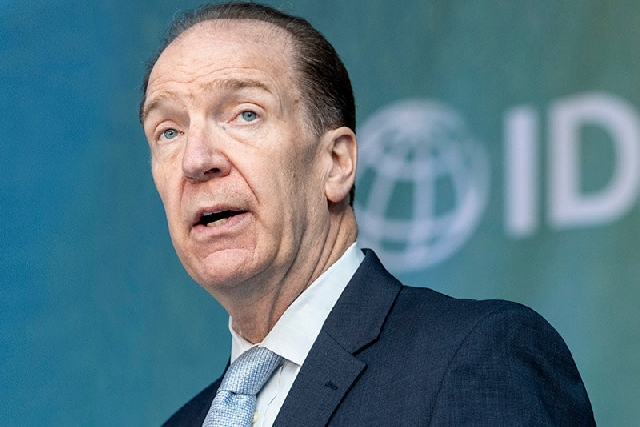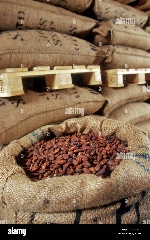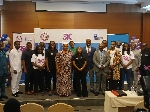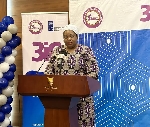Ghana could've frozen debt payments with DSSI but failed to sign on – WB President
 World Bank Group President David Malpass
World Bank Group President David Malpass
Ghana should have signed on to the Debt Service Suspension Initiative (DSSI) so she could have enjoyed a freeze on debt while the gold-, cocoa- and oil-producing country restructured its debt, World Bank Group President David Malpass has said.
At the start of the Covid-19 pandemic, the World Bank and the International Monetary Fund urged the G20 to set up the DSSI.
Established in May 2020, the DSSI helped countries concentrate their resources on fighting the pandemic and safeguarding the lives and livelihoods of millions of the most vulnerable people.
Forty-eight out of 73 eligible countries participated in the initiative before it expired at the end of December 2021.
From May 2020 to December 2021, the initiative suspended $12.9 billion in debt-service payments owed by participating countries to their creditors.
The G20 also called on private creditors to participate in the initiative on comparable terms.
Regrettably, only one private creditor participated.
The World Bank and the IMF supported the implementation of the DSSI—by monitoring spending, enhancing public debt transparency, and ensuring prudent borrowing.
DSSI borrowers committed to using freed-up resources to increase social, health, or economic spending in response to the crisis.
They pledged to disclose all public sector financial commitments (involving debt and debt-like instruments).
They also committed to limiting their non-concessional borrowing under the IMF arrangements and the World Bank’s Sustainable Development Finance Policy.
Answering questions at a programme in Washington D.C. on debt cancellation for African countries and the apparent lethargy of the Bretton Woods institution in that regard, Mr Malpass said: “Kristalina [IMF Boss] and I were talking yesterday with the Group about the Common Framework. If countries could have a situation where the common framework clause allows the country to have a standstill on debt, that would help the country choose their path forward on debt restructuring. That would mean they would get a break on debt repayment while they work on debt restructuring”.
However, he said: “Nigeria and Ghana both, did not ask for the common framework treatment”.
Ghana is currently in negotiations with the IMF for a $3-billion relief to stabilise the faltering economy.
Though no deal has been reached yet, there have been talks in the media of a possible debt-restructuring agreement.
Source: ClassFMonline.com
Trending Business

Gov't increases producer price of Cocoa to $5,040 per tonne to take effect on August 7
12:14
Okuapehene’s 3000-acre land to empower Andy Okra’s TCDA to grow tree crops in Akuapem
11:08
Foreign Affairs Minister directs envoys to begin exclusive serving of made-in-Ghana meals at all events
08:17
CAG calls for sector-wide price reductions and urges gov't action to curb soaring food costs
07:04
SIC MD engages stakeholders during official visit to Ashanti Region
09:48
DVLA's mandatory DP sticker & insurance issuance starts at the ports
09:25
Agri-Impact and Israeli Embassy host agribusiness innovation forum in Accra
17:00
Tema port stakeholders welcome BoG’s exchange rate transparency directive
09:34
NIC commissioner rallies insurance stakeholders to support informal sector and youth innovation
08:06
Dr. Amina Sammo champions inclusive insurance as a tool for development at UNDP-NIC 3ic demo day
03:10




